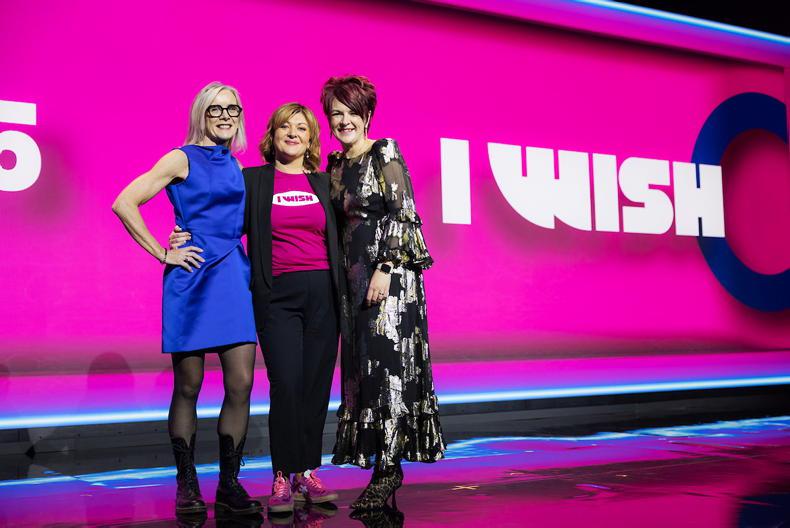I’m concerned about Flourish; the new Catholic primary schools’ sex education programme.
Before I begin, I should say I identify as Catholic (a lapsed one, but still). In our part of the country, when it came time for my children to go to school, we didn’t have any secular school options – the national school in the village was, really, our only choice. Although we are “lapsed Catholics”, we also had to accept that our children would be taught about Catholicism in school.
I don’t think we’re the only parents in our region and age group who have become disillusioned with the Catholic Church, but – although I had some concerns when my first child started school – I have honestly been delighted with their overall education.
It’s not that sex education shouldn’t be taught in schools – when taught well, in an unbiased, science-based way, it can help empower and protect children
At their school, they learn the meaning of kindness and teamwork alongside their mathematics and Gaeilge. They grow flowers and vegetables in their little school garden. They have a great sports programme and, in normal times, have the option to partake in extracurricular activities. My children’s’ teachers are wonderful people.
But should sex education – primary or secondary – be taught with any kind of religious element? I don’t think so. It’s not that sex education shouldn’t be taught in schools – when taught well, in an unbiased, science-based way, it can help empower and protect children if and when they find themselves in vulnerable situations. In a perfect world, parents would be open about sex and educate their own children, but we know that doesn’t always happen.
But what and how we teach children can have a lasting, negative impact on their lives.
This was well-meaning, but led to many many years of intense suffering
I developed a severe anxiety disorder when I was 14. My (very religious) parents didn’t believe in psychology and, instead of getting the cognitive behavioural therapy (which I, years later, learned I needed), they sent me to a Christian counsellor who told me I simply needed to pray my way out of it. This was well-meaning, but led to many many years of intense suffering during my formative years – I will never fully get over that.
For better or worse, what we learn as children shapes who we become as adults. If you’re taught that marriage should only be between a man and a woman, that your sexuality is nothing more than a “gift from God”, that pregnancies are always a blessing and fail to speak frankly (not philosophically) about the importance of communication and consent, we are affecting our children’s sexual futures.
While the Flourish programme appears progressive in some ways, it still fails the kids to whom the traditional Catholic ideals of sex and marriage will never apply (and they won’t be able to “pray their way out of it”, trust me).
If, in the future, one of my children comes out as gay, I would be kept up at night thinking about how this curriculum might have negatively impacted their feelings of self-worth. Those kids will be just as worthy of love, commitment, family and a healthy sex life as any other human being. As a mother of girls, a religious approach to their sexual education worries me in other ways – I don’t want them to think their bodies are just vessels for bringing new life into the world, or that they need to feel subservient to anyone – in any way.
Religion and spirituality still has a place in Irish society and culture, but in the multicultural and increasingly secular school population, I don’t feel it has a place in education. The most important aspects I take from religion – and what I try to impart on my children when they ask about God and Catholicism – are around community-building: being caring, welcoming and a good neighbour. Loving your enemies. Helping those in need. And loving yourself; which includes being proud of your body and sexuality.
If Jesus were among us today, do you really think he would be preaching against the dangers of homosexuality or contraception?
Some people are more literal when it comes to the Bible and Catholicism, and that’s fine – parents are entitled to raise their children with the values they deem important – but it shouldn’t be up to teachers to teach our kids values through religion. In my experience, they already set a wonderful example for their students by simply being themselves.
I choose to value diversity, inclusion and love. If Jesus were among us today, do you really think he would be preaching against the dangers of homosexuality or contraception? I think he would still be driving home the same lesson he taught all those years ago: love thy neighbour as you love yourself.
Some of you will strongly disagree with me, and to you I say: good. Let’s disagree. The mere fact that we’re disagreeing says something – if we’re not all on board with the Church having any kind of say in our children’s sexual education, maybe – just maybe – they shouldn’t have one.
A new Catholic sexual education programme for junior infants to sixth-year students, Flourish was developed by the Irish Bishops’ Conference. The introductory documents and curriculum are all available to read at cpsma.ie.
The programme incorporates lessons in self-awareness, bodily functions and includes a variety of stories, poems, video and includes prayerful reflection with each lesson.
The timing of this new programme coincides with the new (upcoming) relationships and sexuality education curriculum from the National Council for Curriculum and Assessment (NCCA). While all schools will need to adhere to the NCCA’s updates, they can incorporate them in ways that suit their values.
The Flourish programme has adhered to the NCCA’s updates, but have incorporated their own elements of prayer, reflection and spirituality.
If you have any comments or queries, please get in touch at advice@farmersjournal.ie










SHARING OPTIONS